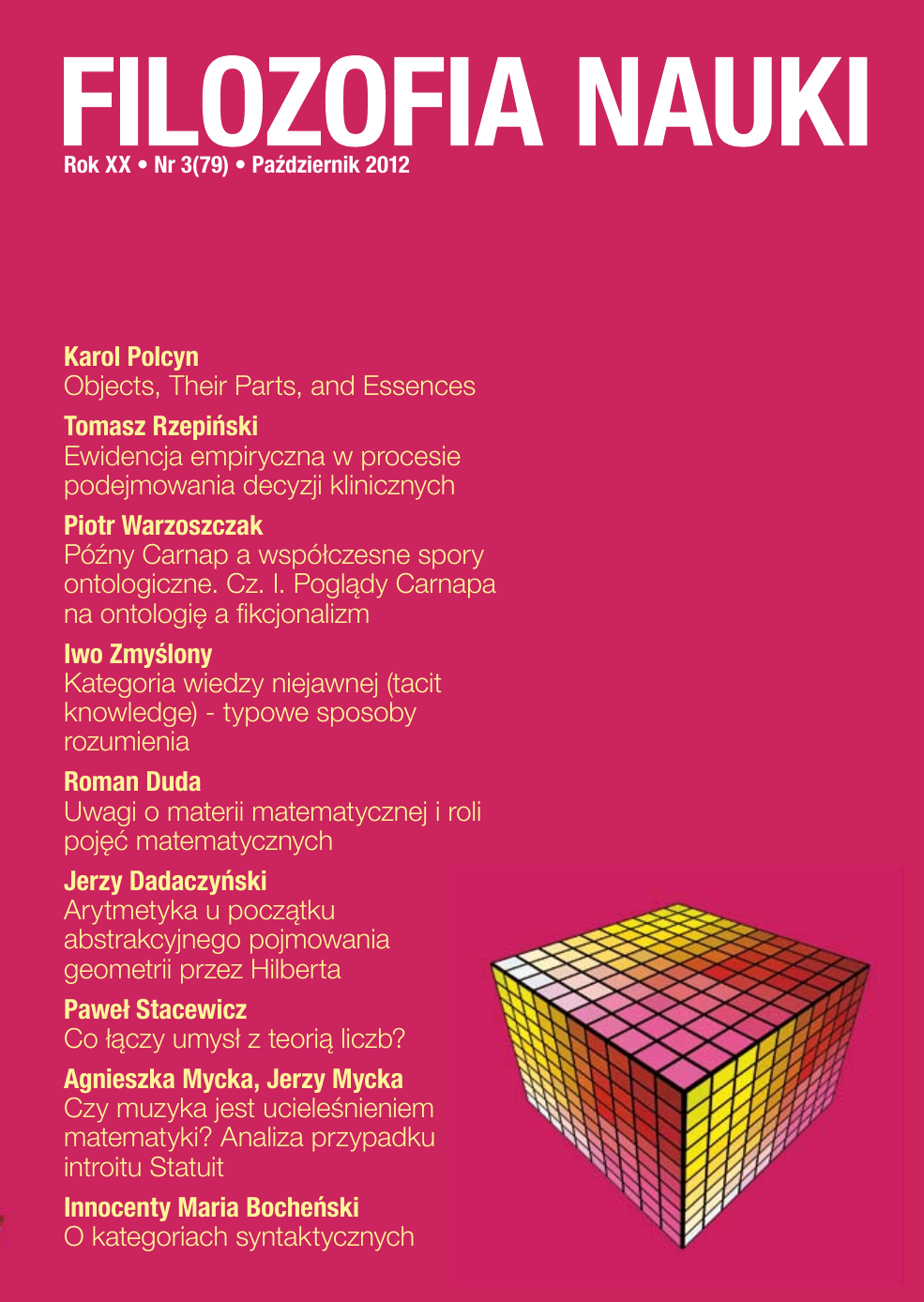Objects, Their Parts, and Essences
Słowa kluczowe:
parts of objects, essential properties, trans-world identityAbstrakt
According to some philosophical views, parts of objects (either three-dimen¬sional or four-dimensional) and whole objects are distinct entities. This raises the question of how to identify objects and their parts across possible worlds. By the principle of the necessity of diversity, the distinctness of objects and their parts must be preserved across possible worlds and this, paradoxically, seems to imply that in other possible worlds objects cannot be temporally or spatially different from what they actually are. For example, it seems that if Descartes and his temporal part are two distinct objects, Descartes could not have lived any shorter than he actually did. I argue that we can avoid this paradoxical conclusion once we realize that no temporal part of Descartes can be identified in other possible worlds with an independently existing person. In general, the view I defend is that parts of objects are not identical with independently existing objects across possible worlds.Pobrania
Opublikowane
2012-09-01
Jak cytować
Polcyn, K. (2012). Objects, Their Parts, and Essences. Filozofia Nauki, 20(3), 5–11. Pobrano z https://www.fn.uw.edu.pl/index.php/fn/article/view/685
Numer
Dział
Artykuły















 Filozofia Nauki | ISSN 1230-6894 | e-ISSN 2657-5868
Filozofia Nauki | ISSN 1230-6894 | e-ISSN 2657-5868